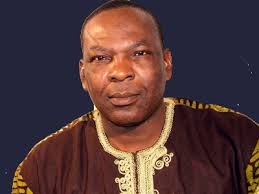The Environmental Rights Action /Friends of the Earth Nigeria (ERA/FoEN) has criticized the Nigerian government cooperation agreement with Russia’s ROSATOM to build four nuclear power plants in the country despite inherent dangers, and at a time most civilized nations are exploring safe renewables.
A statement from the Communications Department of ROSATOM (see link: http://www.rosatom.ru/en/press-centre/news/russia-and-nigeria-signed-an-inter-governmental-agreement-about-construction-of-a-center-for-nuclear/n) pointed out that the Nigeria-Russia deal was brokered on May 30, 2016 on the sidelines of the VIII International Forum ATOMEXPO 2016 which held May 30-June 1, 2016 in Moscow and will start with the construction of a Centre for Nuclear Research and Technology in Sheba-Abuja.
The agreement provides for the construction of a centre with the two-circuit pool-type reactor of the Russian design and a nominal power rating of 10 MW in Sheba-Abuja. Four nuclear plants that ROSATOM will build will cost about $80 billion, with the first expected to be ready by 2025. The other three will be ready by 2035.
In the release, Franklin Erepamo Osaisai, chairman and CEO of the Nigeria Atomic Energy Commission (NAEC) said that the plants would be financed by ROSATOM, which will then build, own, operate and transfer them to the Nigerian government which will enter a power-purchasing agreement. Kogi and Akwa Ibom states are to host the plants.
But in a reaction to the development, ERA/FoEN said that the decision of the Nigerian government to experiment with the nuclear option was not only shocking, but also a betrayal of the Nigerian people who rejected the dangerous path since the technology is unsafe and by virtue of its total control by the Russian firm, will create a state within the Nigerian state.
ERA/FoEN Executive Director, Godwin Uyi Ojo said: “We are miffed that a cooperation agreement on this dangerous experiment has been reached despite the aversion of Nigerians to the nuclear option for generating power. We reject it and refuse to be led into a radioactive misadventure that western countries that hitherto experimented are weaning themselves off and exploring safe renewables.”
Ojo noted that with the Chernobyl and recent Fukushima incident in Japan still fresh in mind, the Nigerian and Russian promoters of the project have neither consulted Nigerians nor taken into cognizance the fact that the project will ultimately tie the country to the whims of the Russian vendor which can be described as the Russian Ministry of Atomic Energy.
“We also gathered that the huge cost associated with the plants also leaves much to be desired because one facility of the kind and capacity that ROSATOM is planning to construct in Nigeria is about seven billion euro in Finland while same goes for $20 billion here.
Ojo explained that ERA/FoEN was part of a team of environmental activists and journalists who visited the proposed 1,200 MW Hanhikivi nuclear power plant in Pyhajoki, Finland, being constructed by ROSATOM and at the venue expressed misgivings about the project and total aversion of Nigerians to building same in Nigeria. In Finland the issue of how the spent nuclear fuel will be managed is now a burning question among local activists who staged resistance rallies against the planned construction in July.
Ojo pointed out that other issues that readily pop up are how the wastes will also be managed in Nigeria and where ROSATOM will get the funds for the construction.
“Without mincing words, for the average Nigerian, the details are scary enough. We reject the nuclear option for power generation because they are dangerous and we do not have the capacity to manage the potential disaster a nuclear breach may cause.
“We advocate the renewal of the Nigerian grid and energy sector. In doing this, renewables are the way to go since they make for both profitable business and safety. We do not support the dirty, unsafe and expensive reactors this government has agreed to build”, Ojo insisted.











